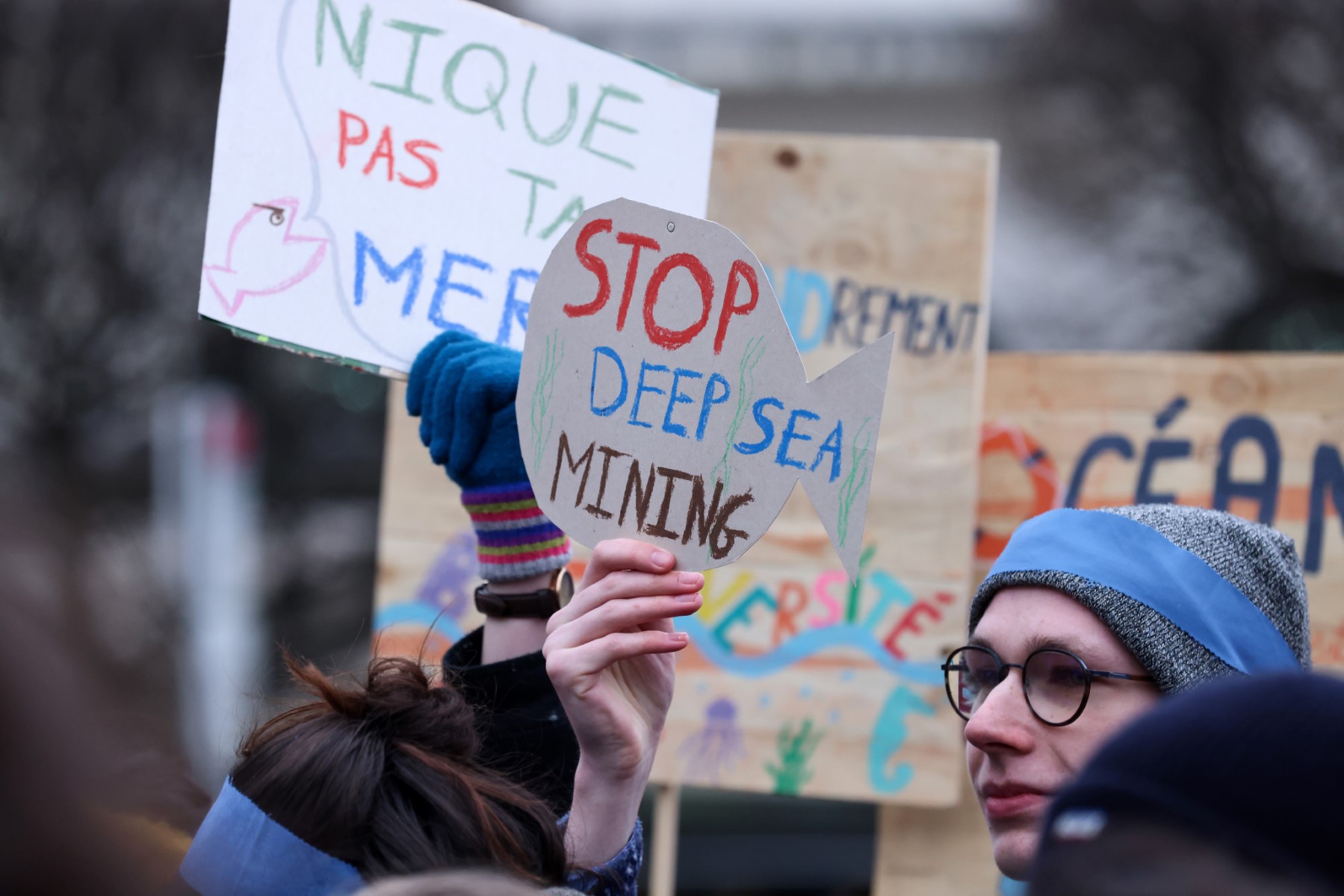Deep-sea mining has been found to have a lasting impact on marine ecosystems, according to research conducted in Japan.
The study focused on the environmental consequences of Japan’s first successful test in 2020 to extract cobalt crusts from the Takuyo-Daigo deep-sea mountains in the northwest Pacific Ocean, an area rich in cobalt, a vital mineral for electric vehicle batteries.
The findings revealed that even a short two-hour mining test caused a significant decrease in fish and shrimp populations in the surrounding vicinity.
The study, published in the Current Biology journal, analyzed data collected one month before and after the mining test, as well as one year later.
The results indicated that the areas directly affected by sediment pollution from the mining test experienced a 43 percent drop in fish and shrimp density.
The surrounding areas showed a 56 percent decline in fish and shrimp density, possibly due to contamination of fish food sources caused by the mining test.
Travis Washburn, the study’s author and a marine ecologist working closely with the Geological Survey of Japan, expressed surprise at the significant impact of the short mining test.
He said, “I had assumed we wouldn’t see any changes because the mining test was so small… But it was actually enough to shift things.”
Washburn emphasized the need for further research to fully understand the implications of deep-sea mining.
The research team concluded that while mobile swimmers might be able to escape the mining area, leading to minimal biodiversity loss, cumulative deep-sea mining activities could result in a large, lasting footprint.
The study highlighted the importance of collecting multiple years of data before conducting mining tests to account for natural variations in ocean animal communities.
Experts have emphasized that deep-sea ecosystems are still not fully understood, making it difficult to determine the exact impact of mining on marine ecosystems.
The authors of the research stressed the necessity of conducting repeated studies to gain a better understanding of how deep-sea mining affects the ocean floor.
They further emphasized the significance of sharing these findings, as regulations regarding deep-sea mining are currently being finalized.
James J. Bell, a professor at the Victoria University of Wellington in New Zealand who was not involved in the study, highlighted the vulnerability of marine communities associated with seamounts to mining impacts.
Bell cautioned that even small-scale mining activities can have lasting consequences and advocated for a cautious approach until a comprehensive understanding of the impact on ecosystems is achieved.
Commercial deep-sea mining has not yet commenced, although exploratory licenses have been granted by the International Seabed Authority (ISA), which governs seafloor resources beyond national jurisdictions.
The ISA is currently in the process of finalizing deep-sea mining regulations, with discussions underway. However, many countries, marine conservation groups, the seafood industry, and scientists have called for a halt to the development of regulations until a thorough understanding of deep-sea ecosystems is obtained.
Kat Bolstad, an associate professor at the Auckland University of Technology, warned that deep-sea mining could cause catastrophic destruction to the seafloor and result in unpredictable impacts such as noise, vibrations, and sediment clouds.
Bolstad said there is a need for greater knowledge of deep-sea ecosystems to make responsible decisions regarding mining activities.
The research findings underscore the importance of taking a cautious and informed approach to deep-sea mining. Further research and a comprehensive understanding of marine ecosystems are necessary before implementing regulations and granting licenses for seabed mining. – with reports from Radio Free Asia







